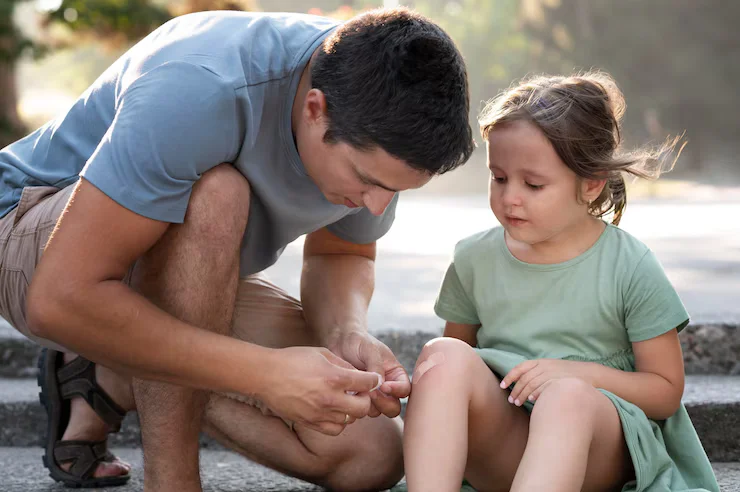An arrest for DUI can be a shocking experience for any parent, especially when their child is underage. This situation requires immediate attention and careful navigation through legal channels. The first step is to understand the legal implications and seek appropriate legal counsel to guide the family through this challenging time.
Parents often feel a range of emotions, from anger to fear, as they grapple with the reality of their child’s actions. It is essential to approach the situation with a level head, focusing on supporting the child while addressing the legal consequences. Open communication about the risks and repercussions of such behavior can play a crucial role in preventing future incidents.
Understanding DUI and the Law
Driving Under the Influence (DUI) refers to operating a vehicle while impaired by alcohol or drugs. The legal implications for individuals, especially minors, can be severe. This section provides a detailed view of definitions, legal thresholds, and the potential consequences of DUI charges.
Definitions and Legal Thresholds
DUI laws can vary by state, but they generally define impaired driving as having a blood alcohol concentration (BAC) at or above a specific threshold. For adults, this is typically 0.08%.
For underage drivers, many states enforce a “zero tolerance” policy, meaning any measurable amount of alcohol can lead to DUI charges. In Ohio, for instance, minors can face DUI charges with a BAC of just 0.02%.
Potential Legal Consequences
The legal repercussions for an underage DUI conviction can include fines, license suspension, and mandatory alcohol education programs.
Potential penalties may include:
- Fines: Ranging from a few hundred to several thousand dollars.
- License Suspension: Typically lasting for one to three years.
- Community Service: Required hours can vary by case.
- Mandatory Counseling: This can include substance abuse evaluation sessions.
In addition to legal consequences, emotional and social impacts can arise, affecting the child’s future opportunities, including college and employment. Engaging a Cincinnati DUI lawyer can provide insights into mitigating these effects and understanding the specific laws that apply.
Immediate Steps After the Arrest
When a child is arrested for DUI, immediate actions are critical. Parents should prioritize interacting appropriately with law enforcement and securing their child’s release from custody.
Interacting with Law Enforcement
When faced with law enforcement, it’s crucial to remain calm and composed. Parents should avoid confrontation and instead focus on gathering as much information as possible. This includes:
- Identifying the Officers: Note their names and badge numbers.
- Understanding the Situation: Ask questions about the reason for the arrest without being aggressive.
- Requesting Documentation: Request a copy of the arrest report and any related paperwork.
Parents should also remind their child to remain respectful. Anything said during the interaction can affect the case later. Taking detailed notes can help in discussing the incident with a lawyer later.
Securing Release from Custody
Securing a child’s release involves understanding the legal process. Parents may need to navigate several steps, such as:
- Contacting a Bail Bondsman: If bail is set, a bondsman can facilitate quick release.
- Understanding Court Appearances: Know the date and location of the first court appearance.
- Obtaining Legal Counsel: Hiring an attorney experienced in DUI cases is important.
Parents should be proactive in communicating with law enforcement about the release process. Being informed can ease the stress of the situation and ensure a smoother transition after the arrest.
Navigating the Legal Process
When a child faces DUI charges, understanding the legal process is crucial. Parents should know the steps involved, including hiring an experienced defense attorney and preparing for court appearances.
Hiring a DUI Defense Lawyer
Selecting a knowledgeable DUI defense lawyer is essential. Parents must seek an attorney with experience in handling cases involving underage drivers. Local firms, such as Cincinnati DUI and OVI defense lawyers, are often well-versed in state laws and can provide targeted representation.
The lawyer will review the specifics of the case, including arrest circumstances and evidence. They can guide families in making informed decisions, negotiating plea deals, or preparing for a trial. Lawyers also help assess potential penalties, including fines, community service, and license suspension.
Preparing for Court Appearances
Preparation for court appearances is vital for children facing DUI charges. Parents should ensure their child understands the process and what to expect. A pre-trial meeting with the lawyer can help clarify roles and goals during the court proceedings.
It is important to discuss appropriate court attire and behavior. Children should present themselves respectfully, as first impressions matter. A lawyer can provide insights on what to say or avoid during hearings the case of Underage Child.
Additionally, being well-informed about possible outcomes and penalties can aid in emotional preparation. Parents should encourage open communication about fears and concerns regarding the court process to help alleviate anxiety.
Supporting Your Child Through Rehabilitation

Rehabilitation is a critical phase following a DUI arrest for an underage child. The focus should be on educational programs and active family involvement to promote recovery and prevent future incidents.
Educational Programs and Counseling
Engaging in educational programs is essential for an underage child facing DUI charges. These programs often cover the risks associated with alcohol consumption and the legal consequences of driving under the influence.
Counseling can also play a vital role. Individual or group therapy can help the child process the event and explore underlying issues related to substance use. Parents should seek programs that are specifically tailored for adolescents, ensuring they address their unique developmental needs.
Parents should also encourage participation in additional workshops that discuss decision-making and responsible behaviors.
Family Involvement in Rehabilitation
Family involvement is crucial in supporting a child’s rehabilitation. Active parental engagement can create a safe environment for open discussions about the incident and future choices.
Regular family meetings can establish a support system, emphasizing understanding and empathy. During these discussions, parents can set clear expectations regarding behavior and the importance of making responsible choices.
Additionally, parents should actively participate in their child’s rehabilitation journey. Attending counseling sessions together or enrolling in family therapy can strengthen their bond and promote a shared commitment to change.







